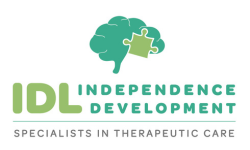
What is Challenging Behaviour in Children?
Many parents might not be familiar with the term “challenging behaviour,” which refers to actions that are difficult to manage or control. This behaviour can be particularly frustrating for parents striving to instill discipline in their children. The causes of challenging behaviour can be varied and complex, encompassing factors such as a child’s temperament, parental expectations, parenting styles, discipline techniques, and the child’s peer relationships and social skills.
What are the Different Types of Challenging Behaviour and How Do Therapies Help?
Challenging behaviour manifests in many forms, affecting children in different ways and for different reasons. It is crucial to identify the types of challenging behaviour to understand how therapy can assist.
Common Types of Challenging Behaviour
- Aggression: This includes hitting, biting, or kicking.
- Self-injury: Behaviours like head-banging or cutting.
- Tantrums: Frequent and intense outbursts of anger.
- Defiance: Regularly refusing to follow rules or instructions.
- Impulsivity: Acting without thinking about the consequences.
Therapists work with children and their parents to uncover the root causes of these behaviours, understand what triggers them, and assess their impact on the child’s life. Therapy aims to teach new ways of behaving, communicating, and coping.
How Behavioural Therapy Can Help
Behavioural therapy is effective for addressing challenging behaviours. This approach focuses on the underlying causes of a child’s behaviour, targeting specific actions such as aggression, self-injury, and tantrums. One widely recognized form of behavioural therapy is Applied Behavioural Analysis (ABA).
What is Applied Behavioural Analysis Therapy?
ABA is based on the principles of learning theory and was developed by psychologist B.F. Skinner. It is extensively used for treating Autism Spectrum Disorder (ASD) and can be applied in various settings, including homes, schools, clinics, and community agencies. ABA therapy involves both direct intervention with the individual and support for caregivers, teaching them strategies to manage behaviour effectively.
Additional Therapeutic Approaches and Interventions
Apart from ABA, other therapeutic approaches can help manage challenging behaviours in children, such as:
Cognitive Behavioural Therapy (CBT)
CBT is effective in helping children and teenagers regulate excessive anger, develop social problem-solving strategies, and enhance their social skills. It focuses on changing negative thought patterns that influence behaviour.
Medication
In some cases, medication may be necessary to manage behavioural issues. For instance, stimulant medication can help children with ADHD concentrate better and reduce hyperactivity. Medication is often considered a last resort, and its benefits must be weighed against potential side effects.
Talking Therapy
Talking therapy, or psychotherapy, allows children to express their feelings in a safe environment. Therapists help children work through emotional or behavioural issues, often leading to significant improvements in behaviour. This approach is frequently combined with medication to help children engage more fully in their therapy sessions.
Early Intervention and Support
Early intervention is crucial for a child’s well-being and successful treatment. Parents are encouraged to seek professional help as soon as they notice persistent challenging behaviours. Child and Adolescent Mental Health Services (CAMHS) can assess emotional, behavioural, or mental health problems and suggest appropriate support strategies.
Behaviour Management Strategies for Parents
- Set Clear Boundaries and Routines: Consistency helps children know what to expect and what is expected of them.
- Positive Reinforcement: Praising good behaviour encourages children to repeat those actions.
- Calm Down Techniques: Teach children strategies to manage their emotions, such as deep breathing or taking a break.
- Understanding Feelings: Help children identify and name their feelings, which can reduce the frequency of outbursts.
Seeking Professional Help
If challenging behaviours persist, it may be necessary to seek additional support. Schools, care providers, and healthcare professionals can offer resources and interventions. A comprehensive assessment by a clinical psychologist or behavioural specialist can provide insights into the causes of challenging behaviour and recommend effective strategies.
Functional Assessments
A functional assessment examines what triggers challenging behaviours and identifies ways for children to express their needs more appropriately. This assessment is often conducted by clinical psychologists or behavioural specialists and leads to the development of a Positive Behaviour Support Plan.
Sensory and Communication Assessments
Sensory assessments, usually conducted by occupational therapists, identify sensory processing issues that may contribute to challenging behaviour. Communication assessments by speech and language therapists can pinpoint difficulties and recommend appropriate communication methods.
Advocacy and Support for Families
Families have the right to seek support and advocate for their children’s needs. If local services are insufficient, parents can request referrals to specialist services or independent consultants. Engaging with local health services, specialist national services, or independent behaviour consultants can provide much-needed assistance.
Conclusion
Managing challenging behaviour in children requires a comprehensive approach involving therapy, support, and sometimes medication. Early intervention and professional guidance are key to helping children develop healthier behaviour patterns and improve their quality of life. By understanding the underlying causes of challenging behaviour and implementing effective strategies, parents and caregivers can make a significant difference in their children’s lives.
IDL is a specialist in Therapeutic and Residential Care, based in the Kent and Birmingham Areas. We provide therapeutic care in our residential facilities for young people with challenging behaviour and learning difficulties such as Autism as well as a range of other conditions. Visit our website www.independence-development.co.uk to learn more.

